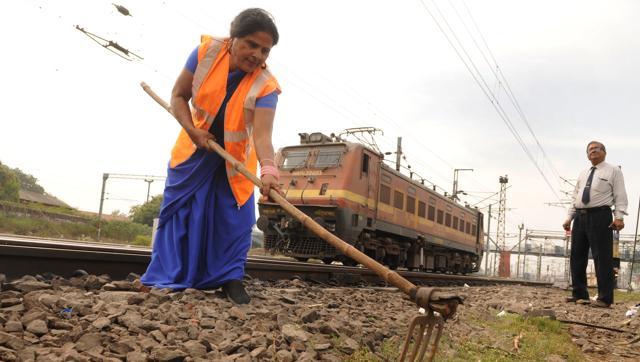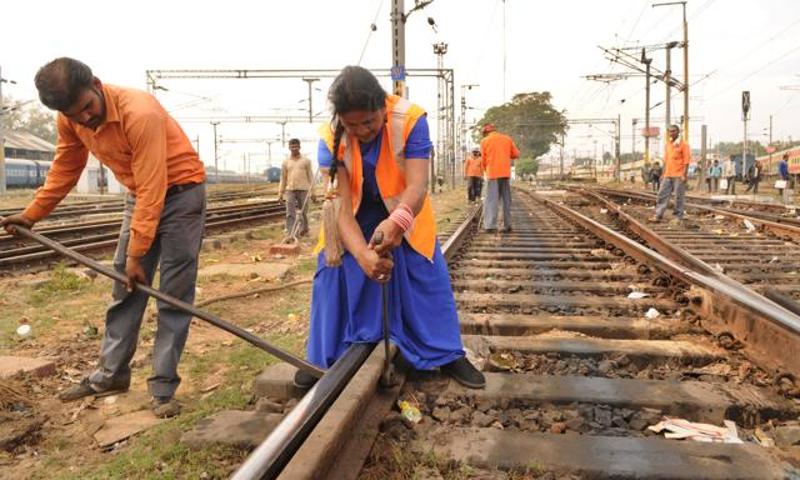
When Feroza Banu became Northern Railway’s first trackwoman in 2004, every day was a struggle.
Her husband had disappeared three years ago, and her colleagues weren’t ready to accept a woman in what has always been a male bastion. She had to run from pillar to post to convince officials she deserved the job. Back home, she had six daughters to bring up.
A decade on, the 50-year-old has proved naysayers wrong. Working in 12-hour shifts, she lugs around a 20-kg bag packed with heavy tools on her back and monitors a 5-km stretch of track near Charbagh railway station in Lucknow.
With scores of trains whizzing past every hour, even a small slip-up can cost hundreds of lives but Feroza doesn’t appear intimidated.
“From Utrethia to Charbagh, I have to ensure fitness and renewal of tracks, packing of sleepers, tightening of bolts and coordination with signals before movement of each train,” she says with pride.

She is fondly called ‘Feroza Aapa’ by her colleagues, who now admit she is a better worker than many of them.
“Her commitment to her job with trains whizzing past, is commendable. And carrying heavy equipment on her back while patrolling an area of around 5 km is not easy,” said SK Sharma, Charbagh station superintendent.
However, for Bano hard work is part of life. “If I have to survive, I have to work. After all, God has given me the role of ensuring safe travel for thousands of people,” she said.
She now lives with two daughters in a house in the Alambagh Railway Colony compound but is acutely aware of her responsibilities.
“I have six daughters, four of them are married. I have to settle the other two also next year before retirement. I was not able to educate them properly because trackwomen are not paid that well,” she says.
source: http://www.hindustantimes.com / Hindustan Times / Home / by Anupam Srivastava, Hindustan Times, Lucknow / November 30th, 2015








